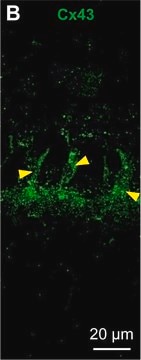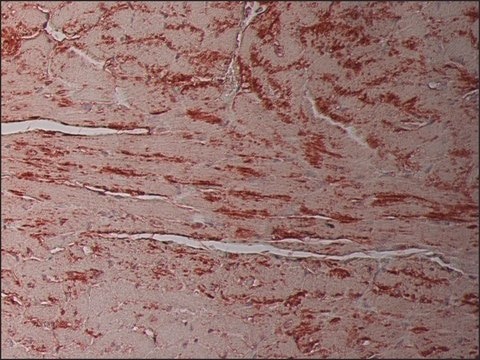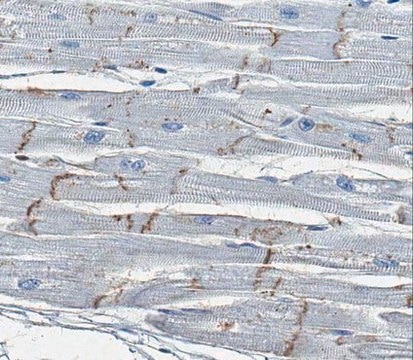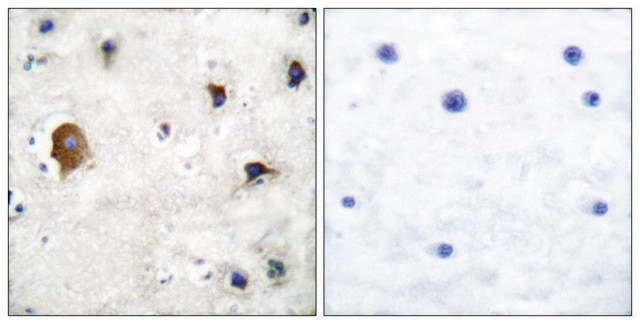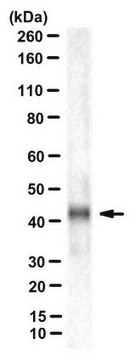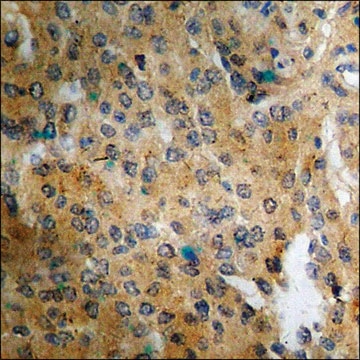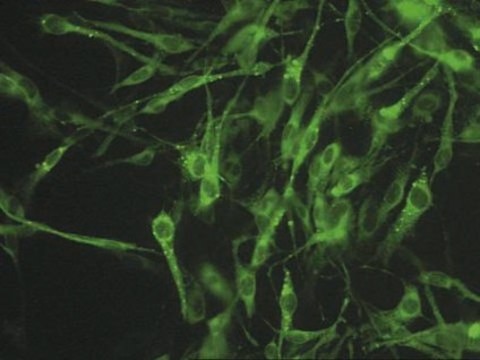AB1728
Anti-Connexin 43 Antibody, CT, cytosolic
Chemicon®, from rabbit
Synonym(s):
Gap Junction alpha-1 Protein (CxA-1)
About This Item
Recommended Products
biological source
rabbit
Quality Level
antibody form
affinity isolated antibody
antibody product type
primary antibodies
clone
polyclonal
purified by
affinity chromatography
species reactivity
human, rat, mouse
packaging
antibody small pack of 25 μg
manufacturer/tradename
Chemicon®
technique(s)
ELISA: suitable
immunofluorescence: suitable
immunohistochemistry: suitable
immunoprecipitation (IP): suitable
western blot: suitable
NCBI accession no.
UniProt accession no.
shipped in
ambient
target post-translational modification
unmodified
Gene Information
human ... GJA1(2697)
General description
Specificity
Immunogen
Application
2-10 µg of a previous lot was used in immunoprecipitation.
ELISA:
A previous lot of this antibody was used at 1:10,000-100,000 dilution using 50 - 100 ng Cx43 control peptide (Catalog number AG636) per well.
Optimal working dilutions must be determined by end user.
Cell Structure
Adhesion (CAMs)
Quality
Western Blot Analysis: 1:500 dilution of this lot detected CONNEXIN 43 on 10 μg of Huvec lysates.
Target description
Physical form
Storage and Stability
Analysis Note
Positive Control: Heart tissue, mouse brain tissue lysate.
Other Notes
Legal Information
Disclaimer
Not finding the right product?
Try our Product Selector Tool.
recommended
wgk_germany
WGK 2
flash_point_f
Not applicable
flash_point_c
Not applicable
Certificates of Analysis (COA)
Search for Certificates of Analysis (COA) by entering the products Lot/Batch Number. Lot and Batch Numbers can be found on a product’s label following the words ‘Lot’ or ‘Batch’.
Already Own This Product?
Find documentation for the products that you have recently purchased in the Document Library.
Our team of scientists has experience in all areas of research including Life Science, Material Science, Chemical Synthesis, Chromatography, Analytical and many others.
Contact Technical Service